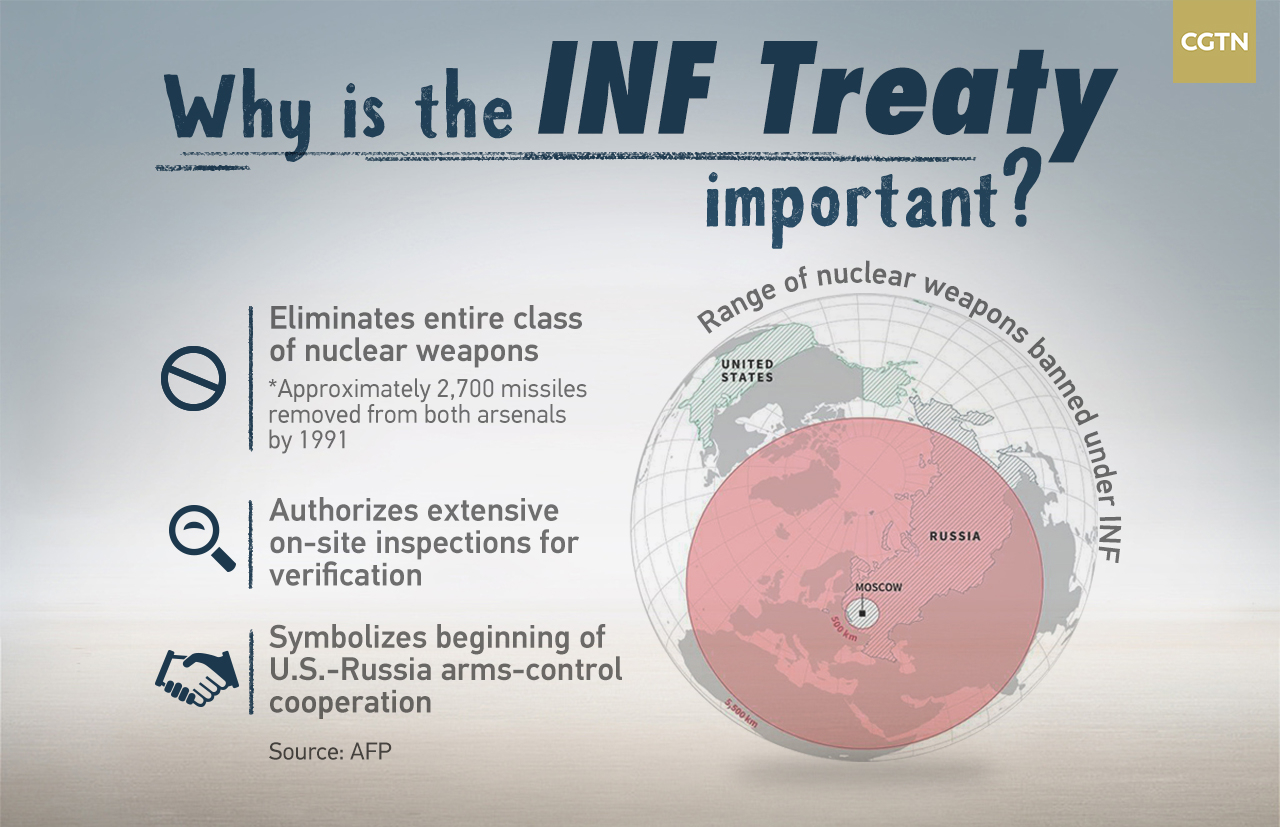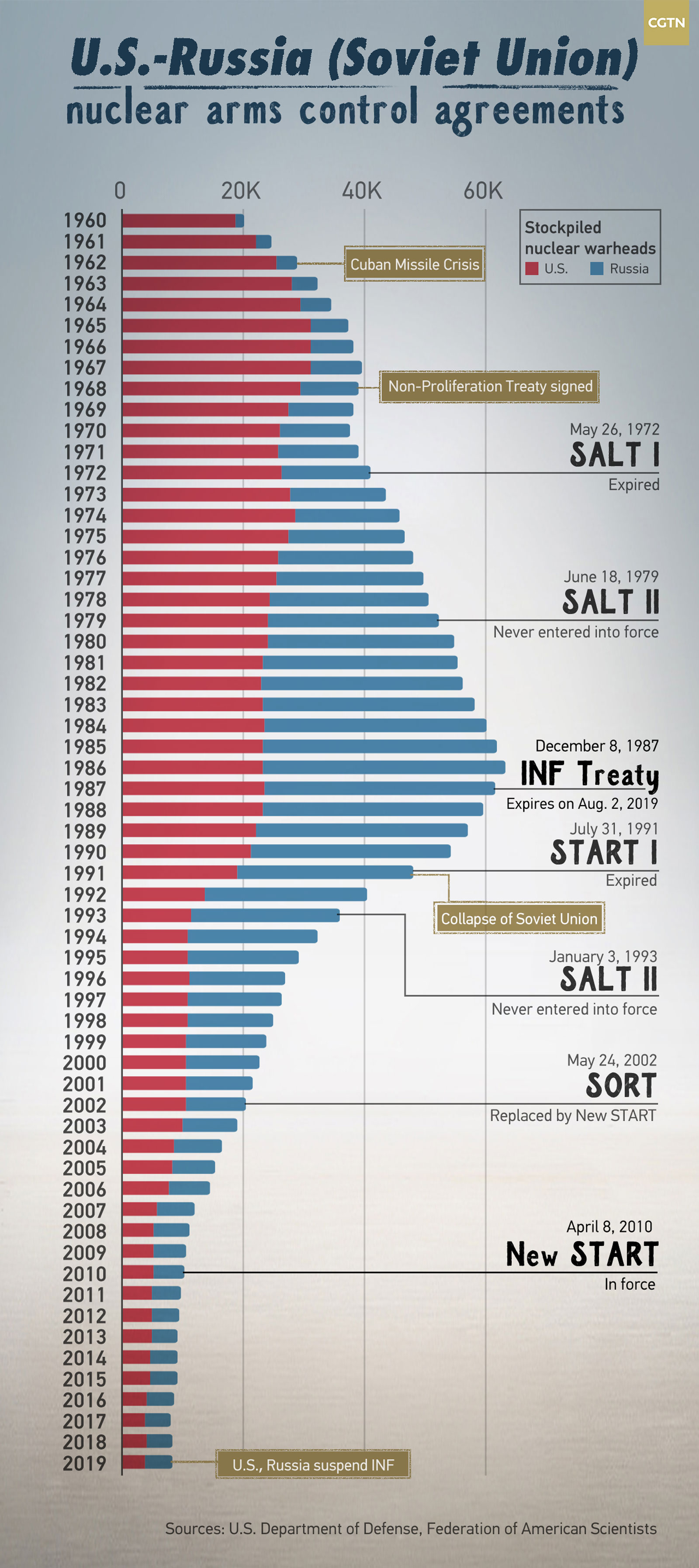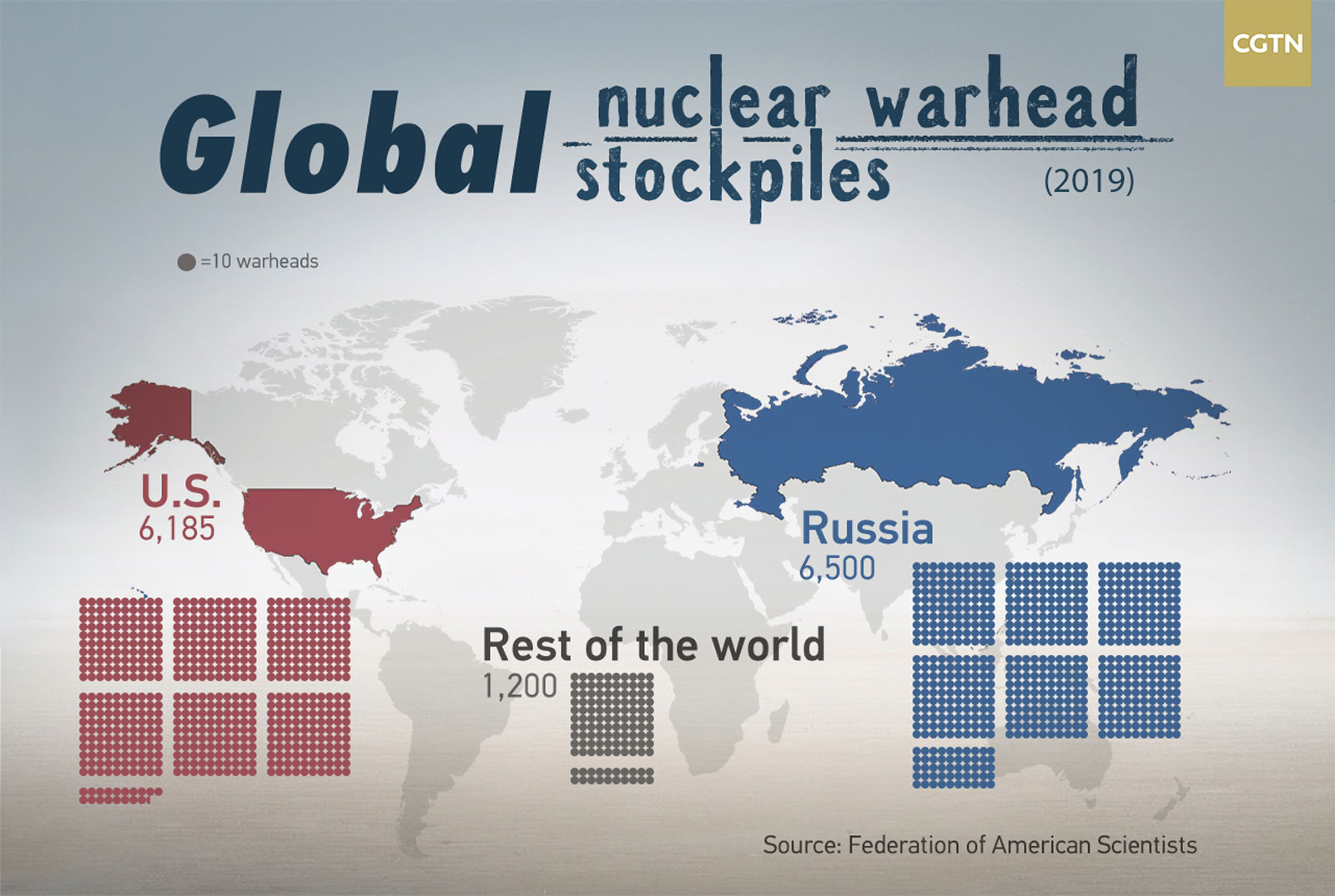
With the U.S. concluding a full withdrawal from the Intermediate-Range Nuclear Forces (INF) Treaty Friday, the number of nuclear arms reduction agreements between the two nuclear superpowers is reduced to one.
The world is losing "an invaluable brake on nuclear war," U.N. Secretary-General Antonio Guterres told reporters Thursday.
Washington formally launched the procedure of leaving the treaty on February 1, accusing Moscow of repeatedly violating its terms – a charge Russia denied.
What's the INF Treaty?
It was signed by then U.S. president Ronald Reagan and former Soviet Union leader Mikhail Gorbachev in 1987, prohibiting land-based cruise or ballistic missiles with ranges between 500 and 5,500 kilometers.

Read more: Why is the U.S. withdrawing from the INF Treaty?
The INF Treaty marked the first-ever pact reached by Washington and Moscow on nuclear disarmament and a major step forward in restricting the arms race.
Its collapse could potentially reignite an arms race.
Past deals
To curb arms races throughout history, the United States and Russia have engaged in nuclear arms control negotiations and concluded multiple treaties during the past 50 years.

These efforts lowered tensions and helped to reduce nuclear danger. As a result, the size of the U.S. and Russian nuclear stockpiles has been significantly reduced from their Cold War peaks.
Among the agreements, the INF Treaty is considered one of the most prominent, credited with a pillar of global security that helped end the Cold War.
What's left?
With the INF Treaty ending, just one major nuclear arms reduction treaty between the U.S. and Russia remains: The New Strategic Arms Reduction Treaty (START).
Signed in 2010, the treaty caps the number of deployed nuclear warheads each country can have at 1,550.
But the Trump administration has signaled that it is unlikely to extend New START, which is up for renewal in 2021. Instead, it held out the prospect of a negotiation that would include other nuclear states.
The reality is that the nuclear arsenal of the rest of the world combined accounts for only a fraction of what Russia and the U.S. maintain.

As the two largest nuclear states in the world, the United States and Russia are burdened with special and primary responsibilities in nuclear disarmament.
"Regardless of what transpires, the parties should avoid destabilizing developments and urgently seek agreement on a new common path for international arms control," Guterres said.
Without INF and New START, the world will have fewer restraints on nuclear weapons.
Is the world just witnessing the beginning of a new arms race? Now all eyes are on what comes next.
(Graphics: Yin Yating, Li Jingjie)

Copyright © 2018 CGTN. Beijing ICP prepared NO.16065310-3
Copyright © 2018 CGTN. Beijing ICP prepared NO.16065310-3